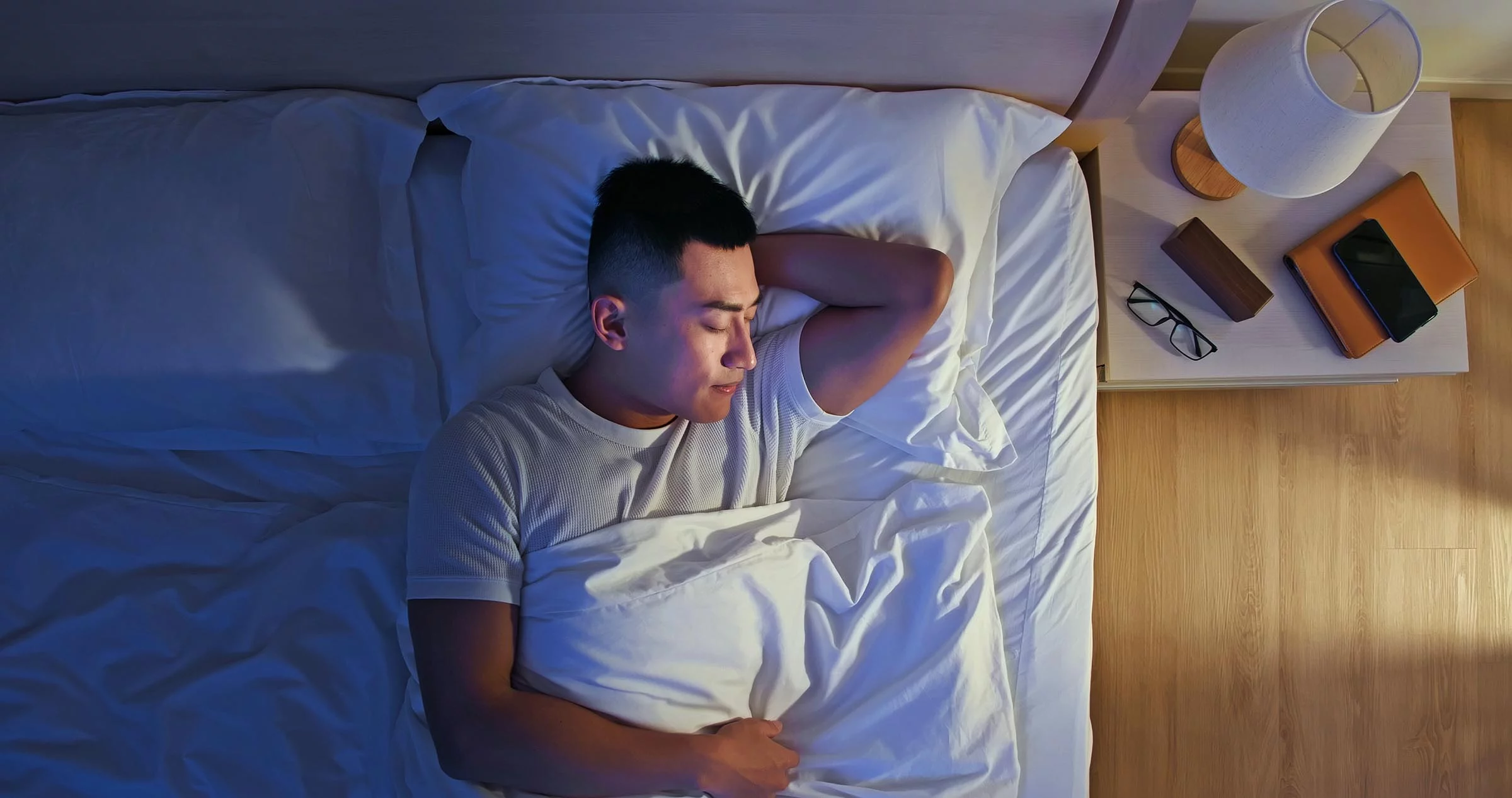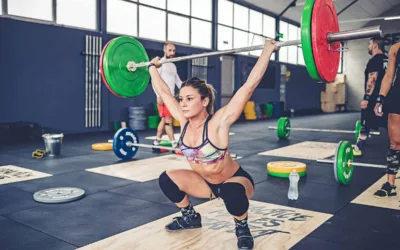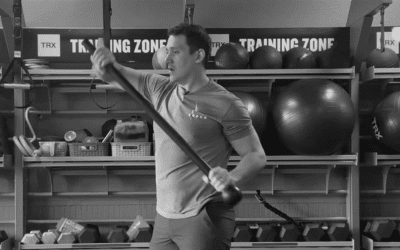How to Sleep Better for Bigger Gains

Ryan Tomanocy is a CSCS, certified CrossFit Level 1 trainer, and USA Weightlifting sports performance coach. In this article, he explains why sleep is the low-hanging fruit to improving your fitness along with five actionable strategies for better bedtime habits.

Change the Way You Train
The Sleep Struggle Is Real
“Want XYZ, YOU SHOULD GET MORE SLEEP.” Yeah, yeah…we’ve all heard it. And how many times have we actually tried to make a change to get more sleep? For 99% of us (myself included), the answer is ZERO times.
As I’m sure you know, the research on the benefits of sleep for a healthy lifestyle is VERY conclusive. “Exercise, sleep, and nutrition form the triangle of health, and all are related,” says Dr. Phyllis Zee, a professor of neurology and director of Northwestern University’s Sleep Health Centers. For one, her research has shown that a proper night’s sleep (7+ hours) results in more productive training sessions later that day.
But seriously though, why don’t we ever try to make a change to improve our sleep? I see a few reasons:
1. Most folks don’t know where to start.
2. Marketing leaves out sleep and instead highlights the sexier stuff – diet, exercise, supplements, etc.
3. It’s not easy to commit to making sleep improvements.
So many people would rather try going keto, changing training programs, or popping an ashwagandha reishi supplement to see if that helps them lose fat, gain muscle, improve energy levels, get stronger, look better naked, make a billion dollars next year, etc.
But what if getting more high-quality sleep moved the needle more than all of the above interventions combined?
Let’s buck the status quo and jump in. Here are five strategies you can implement TONIGHT to get better sleep.
Move Your Body
Not surprisingly, physical activity has a lot of scientific benefits that lead to higher-quality sleep. Exercising outdoors boosts your oxygen levels while Vitamin D helps regulate your circadian rhythm. This keeps you calm and your bedtime consistent, giving you a restful night’s sleep.
The opposite is also true. Lack of sleep leads to crummy training sessions and a negative effect on recovery. When you don’t get enough sleep (or the quality of your sleep is poor), muscle recovery slows. That means you might end up feeling much sorer for longer than you should without seeing much progress.
Get Your Light Right
One of the easiest ways to get into “rest mode” is to adjust your exposure to light.
When you’re exposed to light (like blue light from a screen), your brain stops producing melatonin, the sleep hormone. This makes you feel awake and alert. And there’s no doubt that doom-scrolling or binge-watching keep your mind racing when you’re trying to relax.
Consider turning off your screens an hour before shut-eye. Worst case, use an app like Flux to dim the light from your computer in the evening.
FYI: some studies have shown that exposure to even small amounts of fluorescent light can increase insulin resistance, yikes.
Prep Your Sleep Space
Remove electronics from your bedroom — including your TV — keep the room cool and as dark as possible. Keep your sheets clean, your pillows comfortable, and try some sort of white noise in the background. (You can buy an actual white noise machine, but my wife and I use a $30 fan we got from Costco that works just fine.)
If you really want to nerd out on the best sleeping setup, check out feng shui tips for the bedroom by interior designer, Julie Khuu.
Keep Your Hygiene in Check
Take a warm shower! This is a foolproof sleep-inducer for me. Get into bed clean. If you’re a light sleeper, try earplugs and/or a sleep mask. For dry climates, a good humidifier can be a lifesaver.
If you’re known to snore heavily, consider doing a sleep study to see if you have sleep apnea. While the CPAP machine isn’t the sexiest device, it can absolutely change your life if your sleep is constantly interrupted by breathing troubles.
Maintain a Bedtime Routine
According to the National Sleep Foundation, actively building a healthy nighttime routine makes it easier to get the sleep you need on a consistent basis. For example:
- 7pm: Dinner
- 9pm: Screens Off
- 9:30pm: Read
- 10pm: Shower
- 10:30p: In Bed
Follow some sort of bedtime routine and your new norm becomes falling asleep quickly, sleeping deeply through the night, and seeing your health, fitness, and performance goals become a reality.
How to Successfully Change Your Sleep Habits
Instead, start slowly. Here’s how I recommend starting:
1. Pick 1-2 actions today that are the most sustainable for you long-term. In other words, if we fast-forward 3 years into the future, have you continued to follow these habits? Can you commit to getting in bed 15 minutes earlier and 3×20 minute workouts each week? Great, start there!
2. If you find that one of these actions doesn’t seem to help (after trying something for 3 or more weeks), then scrap it!
3. Go down the list and incorporate a new habit. Maybe taking a shower before bed doesn’t work for you, but what about a warm cup of tea?
4. Play with some of the extras I’ve noted below.
5. Talk with your doctor. My wife had a sleep study prescribed to her and it provided some really helpful insights!
Bonus: Tips to Fall Asleep Faster
Breathwork: Try five minutes of focused breathing before bed. I love the Box Breathing Method after training sessions and before bed. I’ve even used it in my pre-bed shower.
Breathe in for four seconds, hold for four seconds, breathe out for four seconds, hold for four seconds, and repeat for 6-10 rounds.
Sleep Supplements: Personally, magnesium really helps me to sleep more soundly. And most health professionals would point out that the large majority of folks are deficient in it.
My wife uses melatonin on an as-needed basis. Brands like Beam and other CBD products are great places to start with supplements.
Talk to your doctor and don’t forget to read the product labels. Chronic use of most sleep aids will blunt their effectiveness over time, so use them only when you need them.
Meditation: If you’ve never meditated before, check out the Headspace app, Reveri hypnosis app, a sleep podcast, or something similar. There’s a lot of guided meditations out there that are great for clearing the mind.
New Position: Try a new sleeping position, add a pillow between your knees, and scan this article from Dr. Hennoch describing pro’s and con’s of each position!
Control Your Temperature: Try out the Eight Sleep Mattress Cover to customize your and your partner’s preferred sleeping temps. I’ve heard GREAT things about these from folks I really trust, including Dr. Huberman of the HubermanLab podcast. (Here’s one of his ToolKit summaries on sleep, if you’re a nerd like me!)
If you’re serious about your health, fitness, and performance goals, then a full 7+ hours of sleep every night is essential.
Remember that it’s a process and not everything will work right away. Commit to finding a good sleeping routine that works for you, and you’ll see dramatic changes in your mood and fitness performance. (I know I have!)
Find Your Perfect Training Plan
Sometimes all you need to reach your destination on your fitness journey is an expert guide. We've got you covered. Browse from thousands of programs for any goal and every type of athlete.
Try any programming subscription free for 7 days!
Want Training Tips, Exercise Guides & Knowledge Bombs Sent to Your Inbox?
Sign up for the FitNerd newsletter from TrainHeroic
Related articles
3 Ways to Improve Mobility Without Stretching
Are you still trying the endless foam rolling and stretching exercises to get that deep squat position? We know how important mobility is for great, or even GOOD performance. All professional athletes have some comfortability in end ranges of motion. So, what else do...
The Ultimate Guide to Lunges: Queen of all Glute Exercises
Your glutes are the largest muscle group in your body. They’re responsible for almost everything your legs do—walking, running, jumping, squatting, lunging, and just standing upright. As far as moving through space goes, strong glutes are the bedrock of overall...
A Beginner’s Guide to Steel Mace Training
Author: Jesse Grund
Mace training will make you a better mover without it’s not confining you to a fixed space or predetermined range of motion. Second, it’s an offset load with 80 to 90 percent of the weight in the head. You’re also constantly having to resist rotation, which creates greater core engagement.

Join the community
Sign up for the latest training news and updates from TrainHeroic
Support
Made with love, sweat, protein isolate and hard work in Denver, CO
© 2023 TrainHeroic, Inc. All rights reserved.







